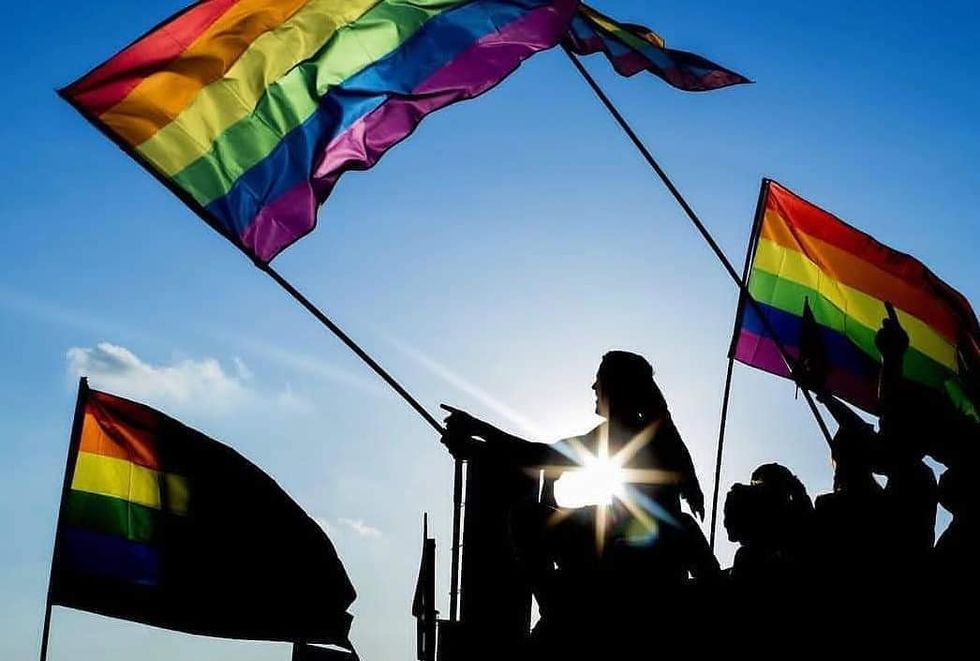It really is hard to comprehend just how much culture can change in ten years. In such a short amount of time (historically speaking), ideas can go from unthinkable to societal norms that are accepted without much hesitation. As someone who majors in history, it's so interesting to me to see the evolution of cultures and societies and to see just how dramatically things can change. For a normal person, ten years feels like an eternity, but to historians, it's barely the blink of an eye. One concept that has changed considerably over the past decade is LGBTQ+ rights. Looking back, it's hard to imagine just how restrictive the United States used to be for these groups just ten short years ago.
*Disclaimer: I am not LGBT just because I support LGBT rights. You can support animal rights without being a damn giraffe. Moving on...
Let's start with marriage equality. At the beginning of 2009, only two states issued marriage licenses to same-sex couples. This number would gradually increase until the number of states that allowed same-sex marriages outnumbered those that didn't. The nail in this homophobic coffin came in 2015 with the Supreme Court case Obergefell v. Hodges. In a 5-4 decision, the Supreme Court ruled that marriage equality was protected by the fourteenth amendment, making same-sex marriage legal in all fifty states.
There has also been a lot of progress in the protection of LGBTQ+ individuals from discrimination. In 2009, fourteen states and the District of Columbia had laws that prohibited workplace discrimination based on sexual orientation and/or gender identity. In the last ten years, eight more states have passed similar laws. Unfortunately, this is not enough; the majority of states in the country still allow discrimination of this type. The Religious Freedom and Restoration Act, passed in Indiana in 2015 by then-governor Mike Pence, effectively wrote discrimination into the law rather than leaving it as an unwritten rule. More work is sorely needed on this front.
There was also no federal hate crime legislation for acts against LGBTQ+ people in 2009. However, this was changed in October of the same year with the Matthew Shepard and James Byrd Jr. Hate Crimes Prevention Act, named for two individuals who were murdered in 1998. The law expanded the definition of a hate crime to include crimes motivated by gender identity, sexual orientation and disability.
Additionally, conversion therapy was legal in all fifty states in 2009. This unscientific religious therapy was meant to change the sexual orientation of those who took part in it, voluntarily or otherwise. In recent years, many allegations of criminal treatment of these "patients" have drawn national attention. As of January 2019, 14 states and D.C. limit or outlaw gay conversion therapy. However, this means that 46 states still allow it. While some religious organizations stand by the therapy, there is no scientific evidence to suggest that it works. However, there is evidence that the therapy can have negative effects on those who take part in it.
Finally, HIV has become much less stigmatized in the United States over the last decade. Medical advances in treatment are a partial cause; protease inhibitors can stop the HIV virus from replicating within your body, leaving the disease dormant and harmless. Along with better sexual education, this has contributed to a 66% decrease in HIV/AIDS deaths since the peak of the epidemic in 1995. Along with this, there was a complete ban on those with HIV entering the country until 2010. I was completely ignorant of this fact before doing research for this article, and it struck me just how much the perception of HIV has changed in recent years.
While these are milestones that should be celebrated, as a country we still have a long way to go. The majority of states still allow workplace discrimination and conversion therapy, and homophobic and transphobic rhetoric is still prevalent, even from the White House itself...especially from the White House itself. We've come a long way, but we can't afford to get complacent. Equality is an attainable goal, a goal that is closer to a reality than ever before, and the last ten years have shown us that it is more than possible to achieve this goal.

















